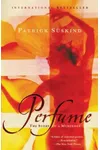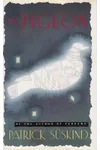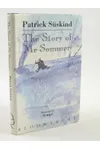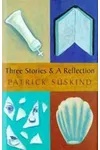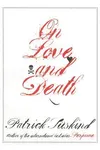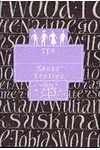Picture a reclusive German storyteller who spun a tale of scent and obsession so vivid it captivated the world—meet Patrick Süskind! Born in 1949 in Bavaria, Süskind is the enigmatic genius behind Perfume: The Story of a Murderer, a novel translated into 49 languages and cherished by over 20 million readers. His sensory-rich prose and haunting narratives have cemented his place in literary history, yet he remains a mystery, letting his stories do the talking.
Unlike many authors chasing the spotlight, Süskind shuns interviews and public appearances, crafting an aura as intriguing as his characters. Let’s dive into the life, works, and lasting impact of this elusive literary master.
The Making of Patrick Süskind
Born on March 26, 1949, in Ambach, Bavaria, Patrick Süskind grew up in a literary household. His father, Wilhelm Süskind, was a writer and journalist, likely sparking young Patrick’s love for storytelling. He studied history and literature at the University of Munich, honing his craft with a keen eye for detail. Before his literary breakthrough, Süskind penned scripts for German television, including the acclaimed series Monaco Franze, sharpening his knack for vivid characters and atmospheric settings.
His early career was marked by a quiet determination to explore the human condition through unconventional lenses. This groundwork set the stage for his explosive debut, which would redefine historical fiction and captivate global audiences.
Patrick Süskind’s Unforgettable Stories
Süskind’s masterpiece, Perfume: The Story of a Murderer (1985), is a dark, intoxicating journey into 18th-century France, following Jean-Baptiste Grenouille, a scent-obsessed murderer. The novel’s vivid olfactory imagery and psychological depth make it a standout in historical fiction. Translated into 49 languages, it’s a global phenomenon, praised for its haunting prose and unique premise.
Beyond Perfume, Süskind’s works are fewer but equally compelling. His play The Double Bass (1981) is a witty, introspective monologue exploring a musician’s existential crisis, showcasing his versatility. The Pigeon (1988), a novella, delves into a Parisian bank guard’s unraveling psyche, blending absurdity and pathos. The Story of Mr. Sommer (1991) weaves a melancholic tale of memory and loss, proving Süskind’s range across genres.
His style is unmistakable: lush, sensory-driven prose that immerses readers in the inner worlds of complex, often isolated characters. Themes of obsession, identity, and the human condition pulse through his work, rendered with a precision that lingers long after the final page.
Why Patrick Süskind Matters
Patrick Süskind’s influence transcends his small but mighty bibliography. Perfume redefined how historical fiction could engage the senses, inspiring writers to explore unconventional perspectives. Its adaptation into a 2006 film and a Netflix series introduced Süskind’s vision to new audiences, cementing his cultural footprint. His reclusive nature only amplifies his mystique, making each work feel like a rare gem.
Süskind’s legacy lies in his ability to craft stories that are both universal and deeply personal, inviting readers to question the boundaries of human experience. In a world of fleeting trends, his timeless narratives endure, whispering truths about our desires and fears.
About Patrick Süskind
- Birth Date: March 26, 1949, in Ambach, Bavaria, Germany
- Key Works: Perfume: The Story of a Murderer, The Double Bass, The Pigeon, The Story of Mr. Sommer
- Notable Fact: His debut novel, Perfume, has sold over 20 million copies worldwide.
Ready to lose yourself in a world of scent and shadow? Snag Perfume: The Story of a Murderer and dive into Patrick Süskind’s mesmerizing prose!
